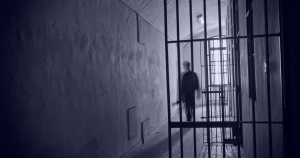Hammamet, Tunisia, 4-6 March 2015
On 4-6 March 2015, No Peace Without Justice (NPWJ organised in Hammamet, Tunisia, a training course on “Documentation of human rights violations and crimes under international law in Libya”, to be held in Tunisia. The three-day training will engage 20 Libyan civil society activists on the main components and relevant techniques and mechanisms of investigation and collection of evidence related to violations of human rights and international criminal law.
Since mid-2014, Libya is experiencing its worst crisis since the fall of the Gaddafi regime. Human rights violations and crimes under international law are being committed by militias and terrorist groups, further worsening the political crisis and reducing the hope for justice and redress for victims. Accountability mechanisms face a number of challenges in Libya with respect to holding perpetrators accountable, including the difficulty to obtain reliable information that could both provide a picture of what is happening and potentially be used as evidence. These mechanisms include national courts and non‑judicial processes, as well as the International Criminal Court, which has jurisdiction since Libya was referred to the ICC in 2011.
The purpose of this training course is to strengthen the capacity of civil society actors to undertake investigations and documentation on current events and ongoing violations in Libya, and to bring credible information to accountability processes and bodies, both at the national and international level. With increased capacity to support justice and accountability, Libyan actors can contribute to challenge the current cycle of violence, reduce the expectation and rewards of impunity for atrocities committed and lay the foundation for future redress for victims.
NPWJ project on Libya
NPWJ has been working on the Libyan transition since early 2011, in the framework of its project to support Libya’s democratic transition through justice and accountability. As the country embarks on legislative reforms, the Libyan authorities can break with the legacy of impunity and abuses that typified Gaddafi’s rule with a new respect for the rule of law and a commitment to restoring justice and dignity to victims. Doing so requires not only the investigation and prosecution of the crimes and violence perpetrated during the revolution, but also efforts to confront a history of oppression and human rights abuses that dates back decades under the rule of the former regime.
- For further information, please contact Gianluca Eramo (MENA Program Coordinator) on geramo@npwj.org, or Nicola Giovannini (Press & Public Affairs Coordinator) on ngiovannini@npwj.org or +32-2-548-3915.
- For further information on the activities of NPWJ in Libya please contact Giulia Cappellazzi on gcappellazzi@npwj.org.




